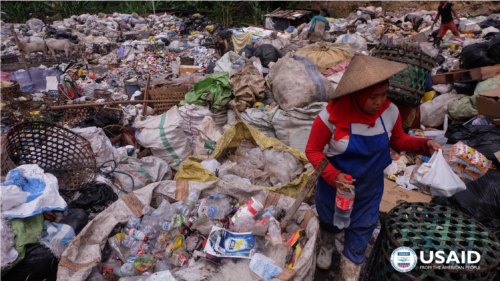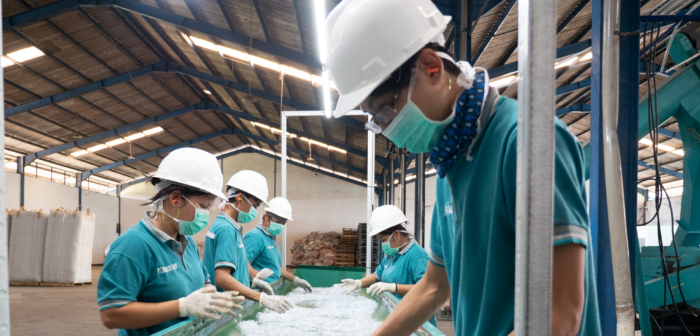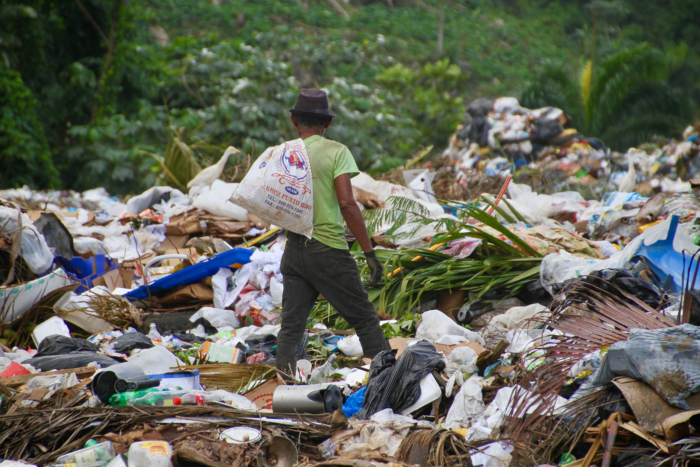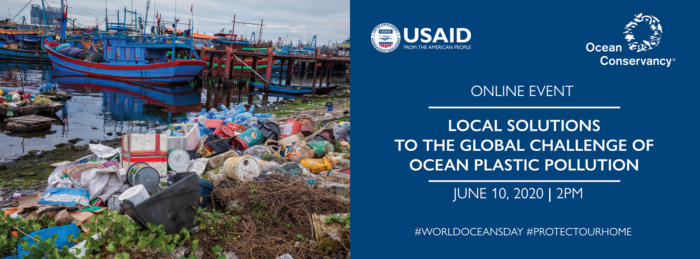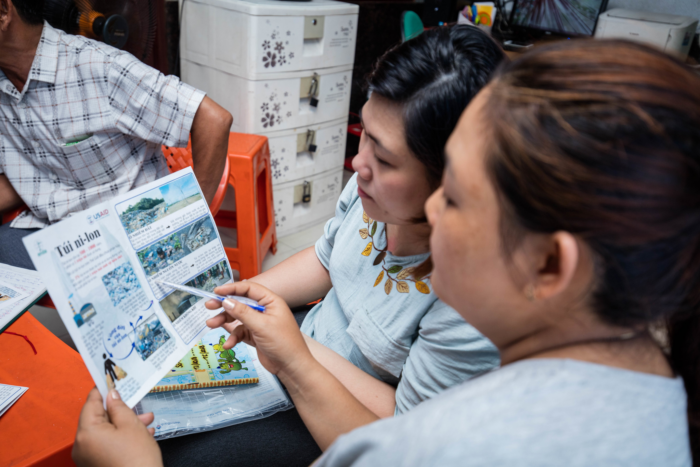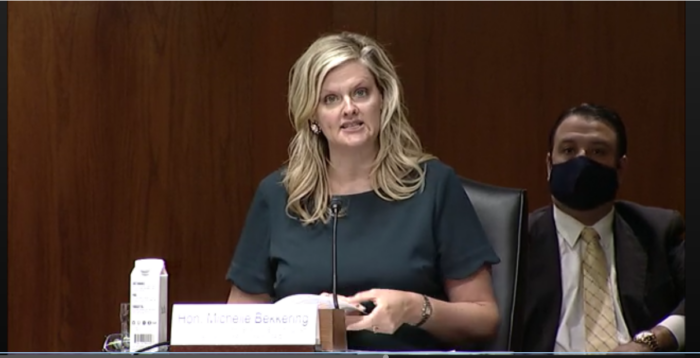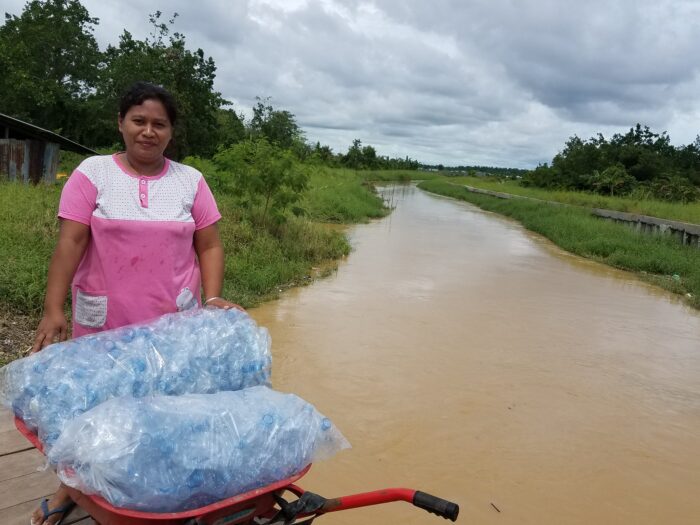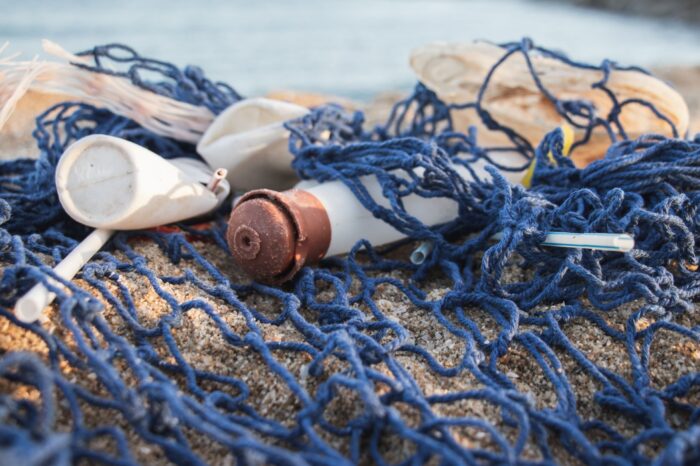Best of 2020 – Ocean Plastics at USAID
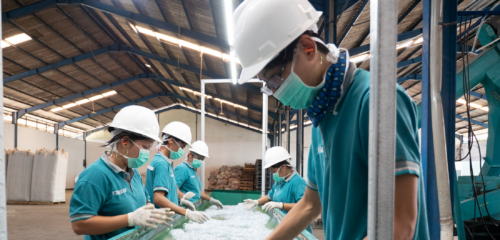
Despite the many challenges of 2020, it was an important year for advancing USAID’s work on combating ocean plastic pollution. From new partnerships to unsung heroes, here are some of the highlights of USAID’s ocean plastics work in 2020:
1: Honoring informal waste collectors – unsung heroes
Each year, eight million metric tons of plastic pour into the world’s oceans caused largely by ineffective solid waste management systems of rapidly urbanizing coastal cities in developing countries. The situation would be even more dire without the efforts of millions of waste pickers, many of whom operate in the informal sector. Waste collection can be difficult and dangerous in the best of circumstances. The additional challenges brought on by the COVID-19 pandemic added new difficulties and showed just how essential waste collectors are. This photo essay from June tells some of their stories
2: First grants awarded under Clean Cities, Blue Ocean
In 2019, USAID launched Clean Cities, Blue Ocean—the Agency’s $48 million, global flagship program for combating ocean plastic pollution. Clean Cities, Blue Ocean targets ocean plastics directly at the source—in rapidly urbanizing areas throughout low- and middle-income countries where waste collection and mismanagement are resulting in high volumes of plastics entering the ocean. The program is starting up in five countries in Asia (Philippines, Vietnam, Sri Lanka, the Maldives, and Indonesia) and in two in Latin America and the Caribbean (Dominican Republic and Peru). The program’s first grant, to test practical ways of reducing the volume and impact of waste through altered household and community waste practices in the Dominican Republic – was announced earlier this month. Additional grants will be announced throughout 2021. Click Here to Learn More.
3: The first Circulate Capital investment deal
Last year USAID launched a partnership with impact investor Circulate Capital to incentivize investment in waste management and recycling in key countries. In April, Circulate Capital announced their first investment deal in Tridi Oasis, an Indonesia-based, women-owned recycling company. Tridi Oasis recycles plastic bottles into new packaging and textiles that are made of post-consumer, recycled plastic. This investment, backed by USAID and the U.S. International Development Finance Corporation, will enable the company to set up a larger recycling facility and expand operations to recycle additional types of plastic.
4: New private sector partnerships
In June, USAID announced a new partnership with the Alliance to End Plastic Waste — an international organization bringing together industry, government, communities, and civil society in the fight to end plastic waste. The Alliance includes more than 40 leading companies that have committed to invest $1.5 billion towards solutions to end plastic waste. Through our Clean Cities, Blue Ocean program, USAID and the Alliance will deploy innovative, locally-appropriate technologies, infrastructure, and business models to improve waste management and recycling in cities and communities at the heart of the ocean plastics pollution crisis.
5: Elevating the global conversation
In June, USAID and Ocean Conservancy co-hosted an online event to highlight the importance of local solutions to the global challenge of ocean plastic pollution. The event featured thought leaders from government, academia, and industry, including Senator Robert Menendez; Congressman Michael McCaul; Simon Lowden, Chief Sustainability Officer, PepsiCo; Professor Jenna Jambeck and others. Global dialogues like these help to raise attention of the urgency of the ocean plastics challenge and galvanize support for promising solutions.
6: Lessons learned from the field
Since 2016, USAID’s Municipal Waste Recycling Program has supported more than 30 locally-led grants across Indonesia, the Philippines, Sri Lanka, and Vietnam. This diverse range of field activities has provided an important laboratory to test and learn from different approaches to tackle the complex challenge of ocean plastics, providing rich opportunities for research and learning. This case study, conducted by the Urban Institute, explores the efforts of two USAID Municipal Waste Recycling Program grants to create behavior change to reduce ocean plastic pollution in Vietnam
7: Bi-partisan support in Congress
In July 2020, the Senate Subcommittee on the Department of State, Foreign Operations and Related Programs Committee on Appropriations United States Senate held a hearing to review U.S. Government efforts to address ocean plastic pollution internationally. USAID Assistant Administrator Michelle Bekkering testified on USAID’s work to address ocean plastic pollution, where she highlighted the Agency’s growing portfolio and opportunities for further engagement. Separately, both houses of Congress passed the Save Our Seas 2.0 bill, which elevates international efforts to combat ocean plastic pollution.
8: Women take center stage
For years, USAID’s ocean plastics programs have had a strong focus on gender and women’s empowerment. In 2020, those efforts got a boost with the announcement for an additional $2 million from Women’s Global Development and Prosperity (W-GDP) Initiative to support women working throughout the waste recycling value chain – from waste collectors to women business leaders as part of the Clean Cities, Blue Ocean program.
9: Interagency and Global Engagement
USAID joined the U.S. Government’s interagency Marine Debris Coordinating Committee, multi-agency body responsible for coordinating a comprehensive program of marine debris research and activities among federal agencies. USAID also contributed to the G20 Report on Actions against Marine Plastic Litter as part of the Towards Osaka Blue Ocean Vision and worked with the U.S. Chamber of Commerce’s Global Resource Sustainability Task Force on their G20 issue paper on marine plastics.
10: A new platform for ocean plastics at USAID
In February, USAID launched a refreshed UrbanLinks platform, which includes a new hub for information and resources about USAID’s work on ocean plastic pollution. We also launched a new video and new project pages for Clean Cities, Blue Ocean and the Municipal Waste Recycling Program.
Don’t miss out any of the exciting news we have planned for 2021 – make sure you are signed up for USAID’s ocean plastics newsletter.


